
A tool designed by Directorio Legislativo to monitor
regulations with the potential to impact civic space
in Latin America and the Caribbean.
Fundación Directorio Legislativo | April 2020
About Civic Space Guardian (CSG)
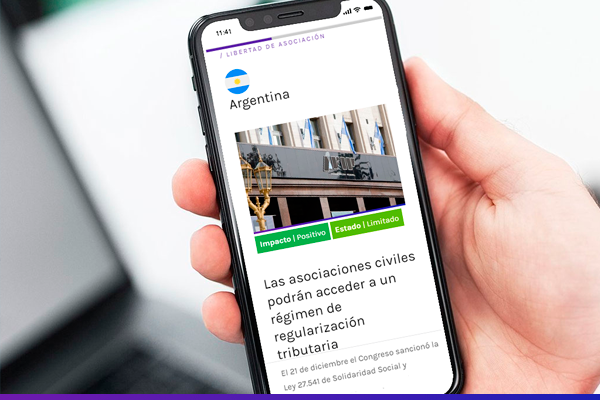
Civic Space Guardian (CSG) is a tool designed by Directorio Legislativo to monitor regulations with the potential to impact civic space in Latin America and the Caribbean.
These are regulations affecting freedom of expression, freedom of association, freedom of peaceful assembly, citizen participation and access to public information. To provide a broader overview, we also include the rating assigned by Civicus according to the state of civic space in each country.
Editorial note
Amid efforts to contain the pandemic and protect citizens, there have been warnings of excesses on the part of governments in applying emergency measures: arbitrary arrests, abuses by security forces, disproportionate sanctions and curbs on freedom of expression.
While the use – controlled and temporary – of such exceptional measures is permitted under the countries’ constitutions, it neither can nor should become a permanent fixture (G. Agamben, “State of Exception”).
On this, we echo the warnings issued by the United Nations and other organizations committed to the protection of human rights. Governments must adhere to the principles of legality, necessity, proportionality, caution and transparency. The safeguarding of public health is an inescapable obligation of states, but it should not under any circumstances occur at the expense of the constitutional order.
For more details see: “Restricted rights in times of COVID-19: the challenge of safeguarding health and civil liberties”.
Government abandons attempt to muzzle journalists and social commentators
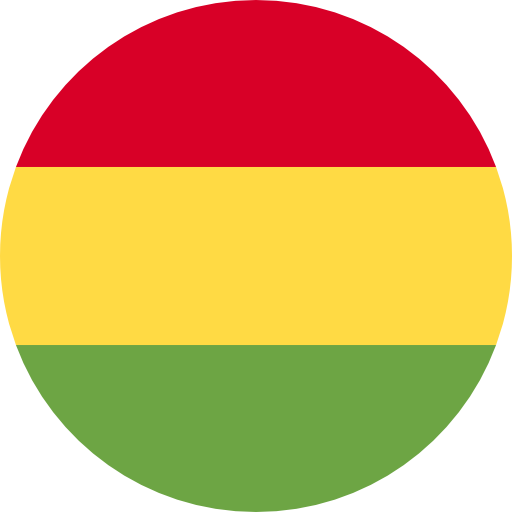
Bolivia
Impact | Negative
Rating CIVICUS | Obstructed
After announcing measures in March to exert closer control over social networks and crack down on users intentionally sharing false information or fomenting uncertainty in the population, on May 8 the government went a step further in launching a decree that opened the door to the persecution of social commentators. The norm would have allowed for the initiation of criminal proceedings against those deemed to be putting public health at risk or misinforming in writing or through art. The Bolivian National Press Association (ANP), the Ombudsman’s Office and opposition politicians responded with concern, labelling the move unconstitutional and a threat to the right of information and freedom of expression. Finally, on May 14, the government announced it was repealing the decree, along with two other provisions that had also been denounced by the Inter-American Commission on Human Rights (IACHR)..
Reform of the Penal Code: new threat to freedom of expression
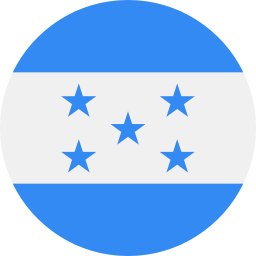
Honduras
Impact | Negative
Probability | High
Rating CIVICUS | Repressed
On May 9, the Honduran Congress set for June the entry into force of a controversial reform of the Penal Code approved last year. The reform will bring stiffer penalties for crimes of slander and libel when “carried out through print, television, radio, internet, information networks, in front of a multitude of people or through other means of similar effectiveness”. Journalists or those who express “critical ideas and opinions” could be exposed to prison terms from 200 to 500 days, or may face fines. Various civil society organizations and factions of the press have criticized the new Code calling it a threat to freedom of expression and opinion. Its entry into force was initially scheduled for May, but deputies postponed it to “receive contributions from civil society” and to “train the Judiciary.” Interested parties may still present their observations on the reform to Congress until June 25
Bukele questioned for bypassing legislature in decreeing state of emergency
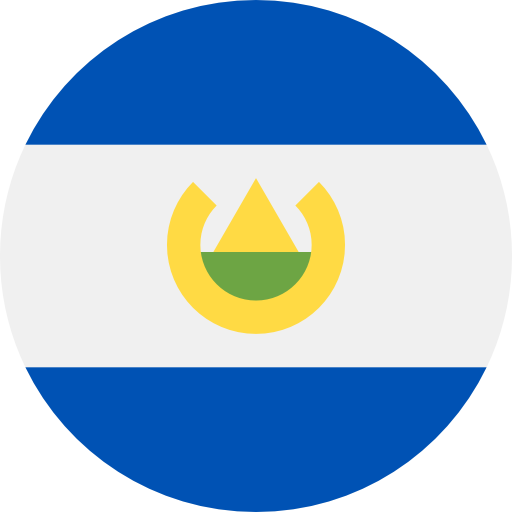
El Salvador
Impact | Negative
Rating CIVICUS | Obstructed
On May 9, President of El Salvador, Nayib Bukele, reinforced by decree the country’s compliance controls in regard to the quarantine. In addition to authorizing the arrest and transfer of those breaching the isolation order, Bukele has given a green light to his security forces to use deadly force against “gang members” after the outbreaks of violence that took place in different correctional facilities in recent weeks. The UN High Commissioner for Human Rights, Michelle Bachelet, warned that combating coronavirus in El Salvador should not be at the cost of sacrificing constitutional order. She has also called on the Executive to comply with the ruling of the Constitutional Court to resolve the situation of those individuals that have been detained for violating the quarantine, as well as, separately, to advance on law to punish abuses of power
Government stiffens penalties for those breaching isolation orders

Chile
Impact | Negative
Probability | High
Rating CIVICUS | Limited
Although the health crisis has put the mass protests in Chile on hold, there are still signs of unrest, as evidenced by ongoing roadblocks and protests. The conflict escalated on May 1, when the Carabineros (police) reported that among the protesters was an individual infected with COVID-19. On May 5, the Chilean Chamber of Deputies approved a government-sponsored bill penalizing individuals or organizations who “endanger public health” with prison, fines or community work. Those punishable under this are individuals who fail to comply with hygiene or health rules, or organizing ‘activities or shows’ in public. Organizations or services that continue to operate in a quarantined area may also be fined. The bill has been handed to the Senate, where legislators must debate it within a maximum of 15 days.
Government thwarted in attempt to advance measure threatening the right to privacy

Brazil
Impact | Negative
Rating CIVICUS | Obstructed
On April 17, President Jair Bolsonaro forced landline and mobile phone companies to share their customer data to support the production of official statistics in response to the pandemic. In the absence of legal guarantees on data protection, on May 7 the Federal Supreme Court suspended the measure for violating constitutional guarantees on the protection of privacy. In their ruling, the members of the Court observed that, although the situation of ‘public calamity’ requires exceptional measures by the State, it is not possible to carry out an indiscriminate transfer of personal data. The developments are in line with a separate decision to postpone until May 2021 the entry into force of the General Law on Protection of Personal Data that obliges companies and state agencies to follow certain principles in the use of citizens’ information.
Lacalle’s ‘omnibus law’ shields police and threatens the exercise of social protest
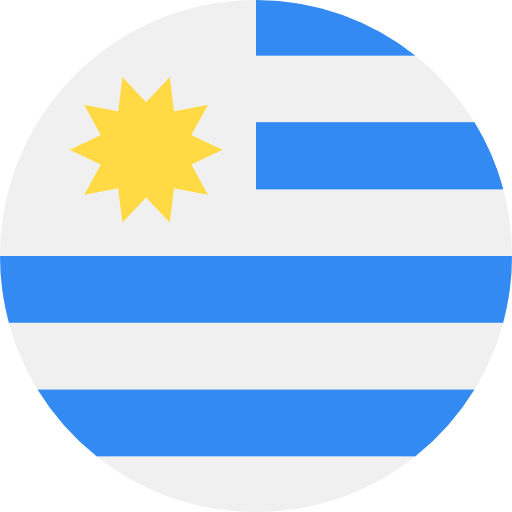
Uruguay
Impact | Negative
Probability | High
Rating CIVICUS | Open
On April 23, President Luis Lacalle Pou sent to Congress a bill to reform the security and justice system. Among its central features, the bill seeks to broaden the principle of self-defense, extend the maximum penalty for adolescent criminals to 10 years in jail, establish penalties for those who “despise” or “aggravate” members of the security forces, and declare protesters who hinder free movement illegitimate.. UNICEF has responded by stating that the proposed modifications would not only undermine the international commitments assumed by the country in the field of Human Rights, but also jeopardize the progress of the penal system. The bill, which also includes a wide variety of other issues, entered Congress urgently, which implies that it will be tacitly approved if the legislative branch does not debate it within three months. The Senate is slated to complete its study of the bill in June.
Mexican Congress seeks to protect journalists and human rights defenders

Mexico
Impact | Positive
Probability | Medium
Rating CIVICUS | Repressed
In late April, the Government and Population Committee of the Chamber of Deputies reported that the proposal to reform the Law for the Protection of Human Rights Defenders and Journalists will be ready shortly. The deputy of the ruling party and president of the committee, Rocío Barrera Badillo, hopes to present it in the course of the next few weeks or once face-to-face sessions in Congress are resumed. Mexico is currently one of the most dangerous countries for journalists in the world, with reports of hundreds of murders and disappearance in recent years. President Andrés Manuel López Obrador (AMLO) has been denounced by Amnesty International for “statements [that] contribute to creating a hostile environment against those who practice journalism and the media.” Reporters Without Borders (RSF ) meanwhile believe the most serious threat to the press in Mexico is “collusion between authorities and organized crime.”
Congress reverses decision to ban journalists from attending sessions

Guatemala
Impact | Negative
Rating CIVICUS | Obstructed
On May 5, Congress reauthorized journalists to attend plenary sessions. Their access had been denied in early April on the pretext of the pandemic, which prompted a challenge from the Human Rights Ombudsman (PDH), Jordán Rodas. In a statement, the Constitutional Court (CC) gave its backing to Rodas, arguing the move entailed a “certain and imminent threat” to freedom of expression and ordering Congress to allow for the entry of journalists and their technical teams to cover the sessions. The Association of Journalists of Guatemala (APG) argued that parliament, as a high state body, must set an example in respect of rights, and warned of the risk that these practices may trigger mayors or governors to take similar steps. Previously, the Inter-American Press Association (IAPA) had urged President Alejandro Giammattei to respect and not restrict the work of the press during the pandemic

Voices of civil society
EL SALVADOR
FUSADES
BOLIVIA
“Between March 21 and May 7, the Bolivian central government issued three Supreme Decrees that provide for the use of the penal system in response to actions that promote disinformation and / or generate uncertainty (…). In the absence of a criminal law that sanctions conduct such as “disinformation”, this is presumably to attribute the conduct to some other article of the penal code that determines that the person incurs in crimes against public health (…). Within two months, at least 193 criminal sentences for crimes against public health were issued through shortened procedures. The government itself reported that at least 67 “political actors” who disclosed false information about the pandemic were prosecuted, and of these, 37 were sentenced for crimes against public health”.
FUNDACIÓN CONSTRUIR

Documents by Directorio Legislativo
Economic and social measures in Latam, the first 50 days of the pandemic
Report on presidential approval ratings in Latin America
We strengthen democracies in Latin America
We are a non-partisan and independent organization that for 10 years has been promoting the constitution of autonomous, flexible, democratic and independent spaces, through dialogue with various actors in the public, private, academic and civil society sectors. The starting point of our work arises from the recognition and appreciation of the political and social plurality of Latin America.

Fundación Directorio Legislativo
Avenida Entre Ríos, 258 – 3E
Ciudad Autónoma de Buenos Aires, Argentina (C1079ABP)
Phone (+5411) 5218-4647








